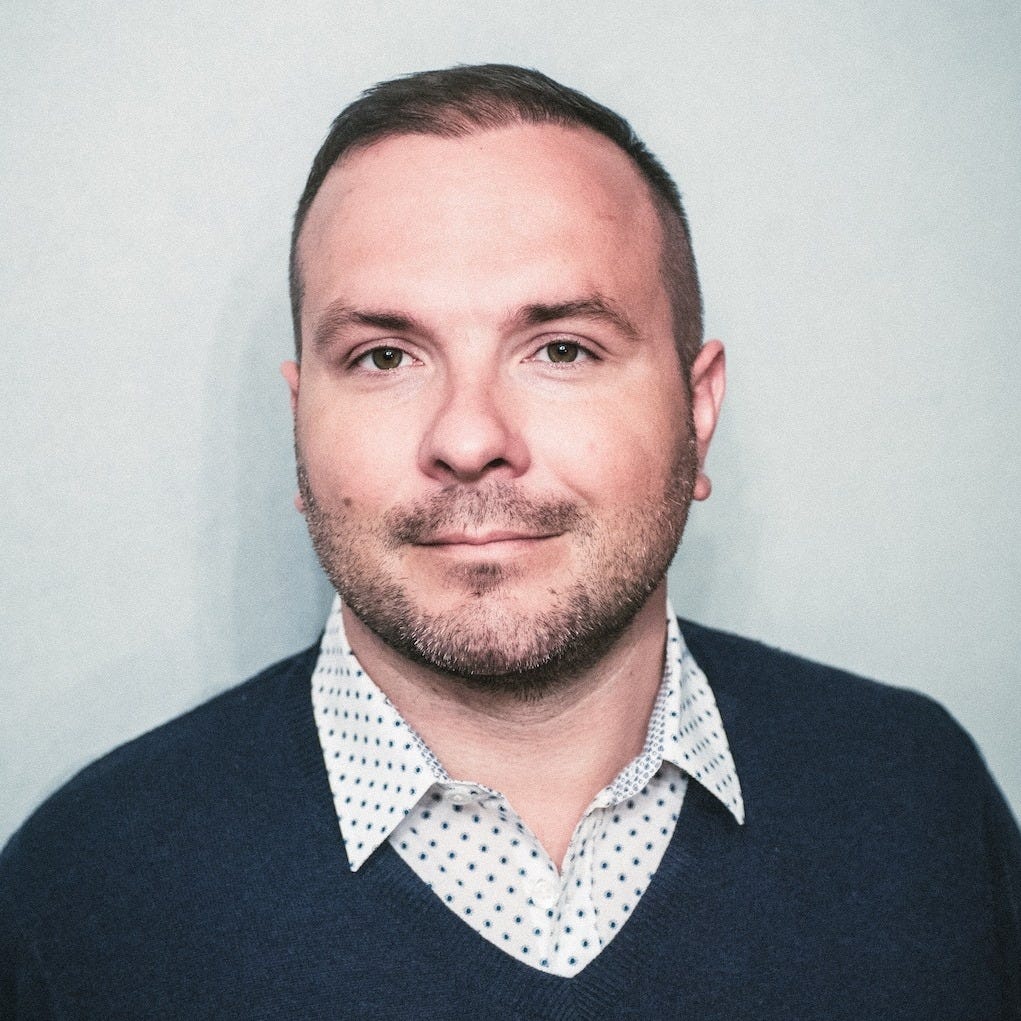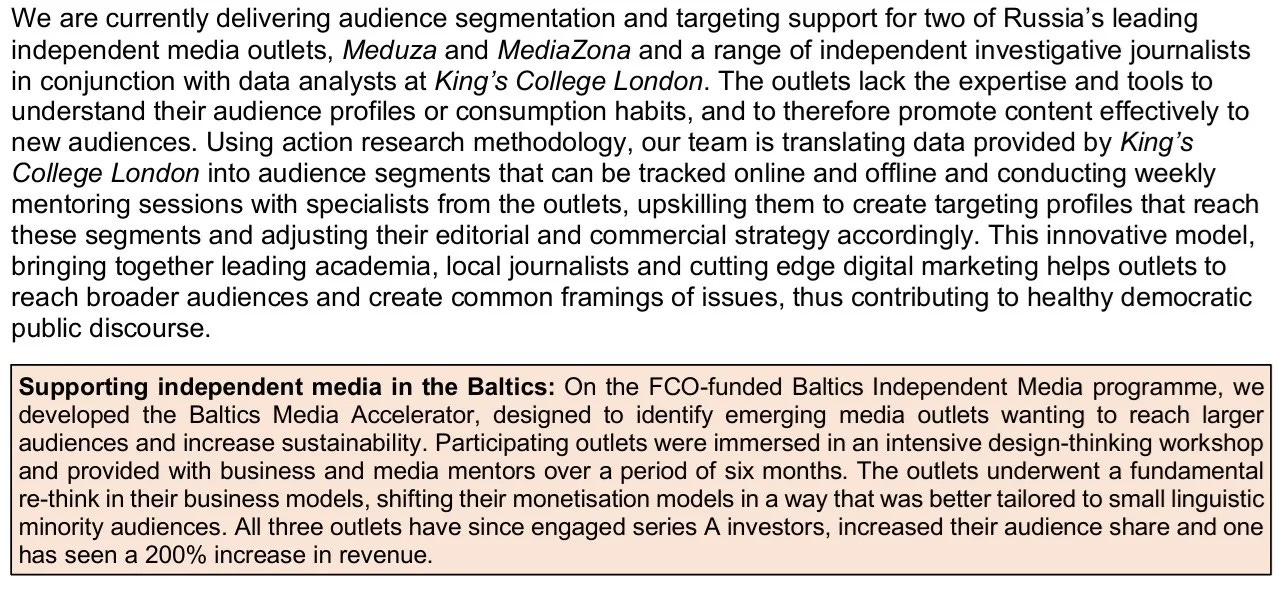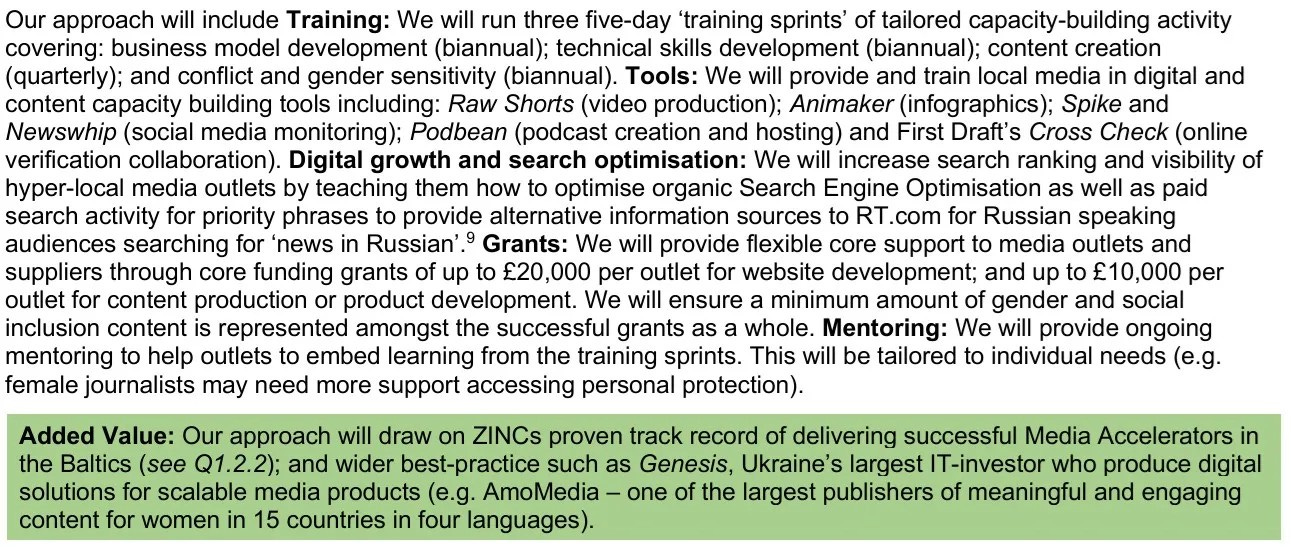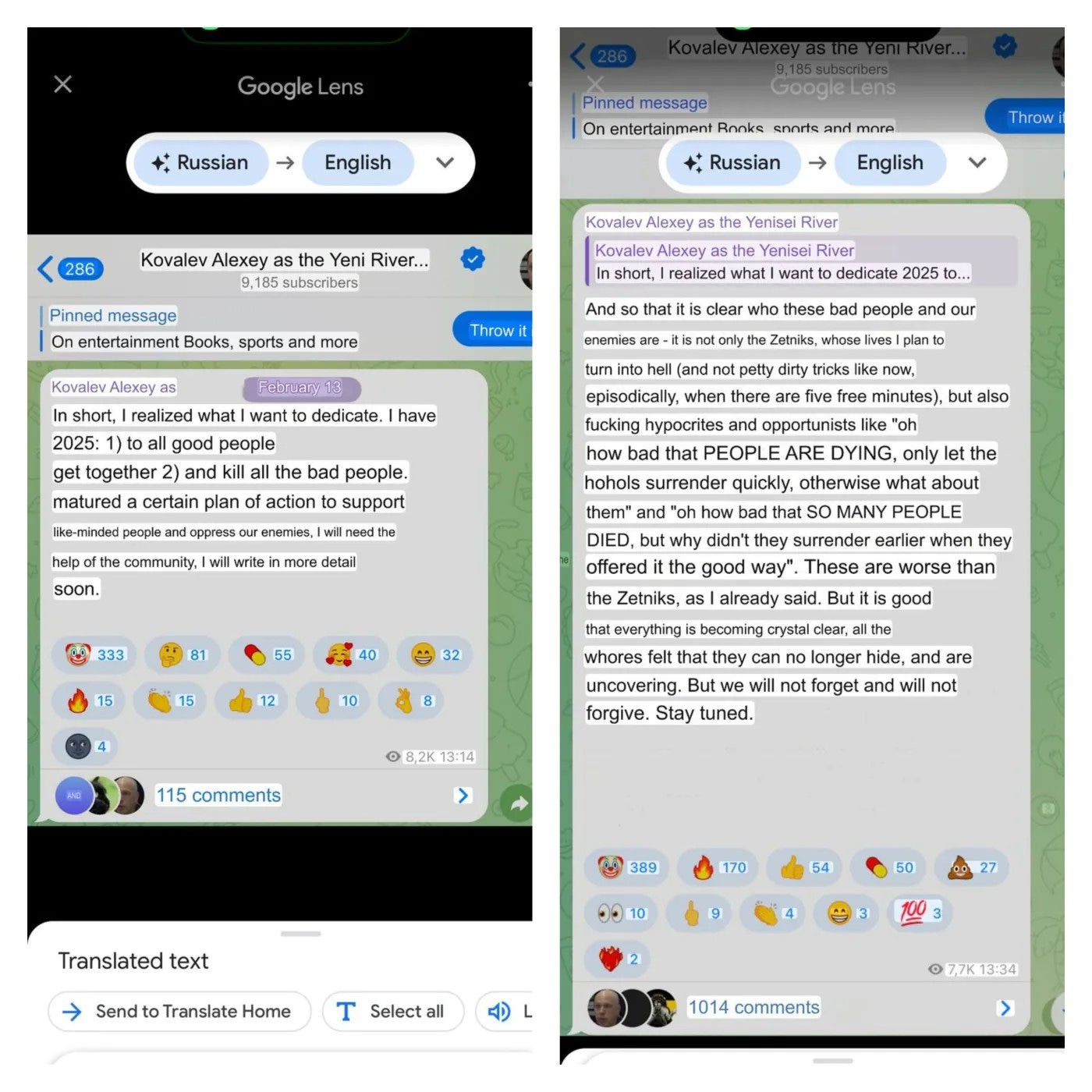By William Hartung, Consortium News, 3/20/25
Alex Karp, the CEO of the controversial military tech firm Palantir, is the coauthor of a new book, The Technological Republic: Hard Power, Soft Belief, and the Future of the West.
In it, he calls for a renewed sense of national purpose and even greater cooperation between government and the tech sector. His book is, in fact, not just an account of how to spur technological innovation, but a distinctly ideological tract.
As a start, Karp roundly criticizes Silicon Valley’s focus on consumer-oriented products and events like video-sharing apps, online shopping and social media platforms, which he dismisses as “the narrow and the trivial.”
His focus instead is on what he likes to think of as innovative big-tech projects of greater social and political consequence.
He argues, in fact, that Americans face “a moment of reckoning” in which we must decide “what is this country, and for what do we stand?”
And in the process, he makes it all too clear just where he stands — in strong support of what can only be considered a new global technological arms race, fueled by close collaboration between government and industry and designed to preserve America’s “fragile geopolitical advantage over our adversaries.”
Karp believes that applying American technological expertise to building next-generation weapons systems is the genuine path to national salvation and he advocates a revival of the concept of “the West” as foundational for future freedom and collective identity.
As Sophie Hurwitz of Mother Jones noted recently, Karp summarized this view in a letter to Palantir shareholders in which he claimed that the rise of the West wasn’t due to “the superiority of its ideas or values or religion… but rather by its superiority in applying organized violence.”
Count on one thing: Karp’s approach, if adopted, will yield billions of taxpayer dollars for Palantir and its militarized Silicon Valley cohorts in their search for AI weaponry that they see as the modern equivalent of nuclear weapons and the key to beating China, America’s current great power rival.
Militarism as a Unifying Force in a New Manhattan Project
Karp may be right that this country desperately needs a new national purpose, but his proposed solution is, to put it politely, dangerously misguided.
Ominously enough, one of his primary examples of a unifying initiative worth emulating is World War II’s Manhattan Project, which produced the first atomic bombs. He sees the building of those bombs as both a supreme technological achievement and a deep source of national pride, while conveniently ignoring their world-ending potential. And he proposes embarking on a comparable effort in the realm of emerging military technologies:
“The United States and its allies abroad should without delay commit to launching a new Manhattan Project in order to retain exclusive control of the most sophisticated forms of AI for the battlefield — the targeting systems and swarms of drones and robots that will become the most powerful weapons of the century.”
And here’s a question he simply skips: How exactly will the United States and its allies “retain exclusive control” of whatever sophisticated new military technologies they develop?
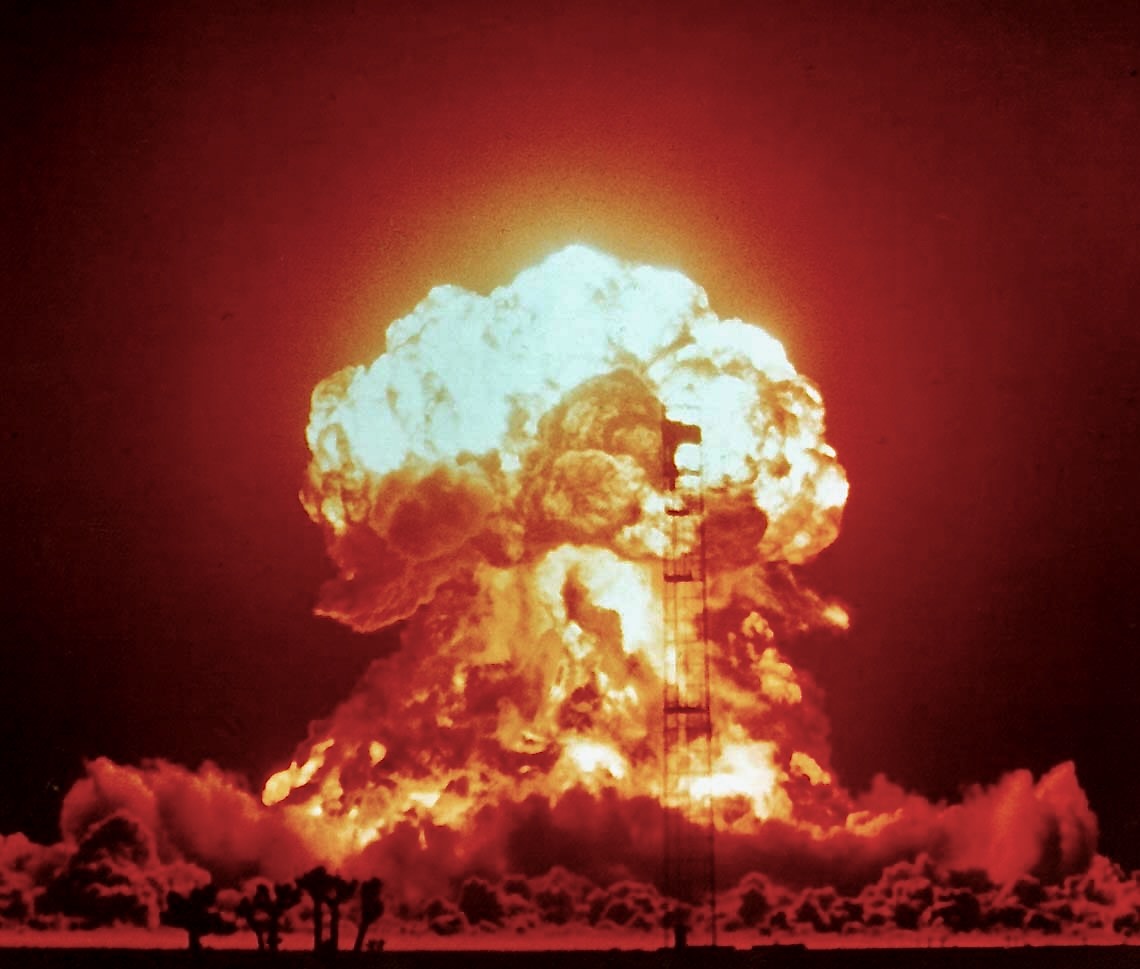
The Badger nuclear explosion in 1953 at the Nevada Test Site. (Public domain, National Nuclear Security Administration / Nevada Site Office)
After all, his call for an American AI buildup echoes the views expressed by opponents of the international control of nuclear technology in the wake of the devastating atomic bombings of the Japanese cities of Hiroshima and Nagasaki that ended World War II — the futile belief that the United States could maintain a permanent advantage that would cement its role as the world’s dominant military power.
Nearly 80 years later, we continue to live with an enormously costly nuclear arms race — nine countries now possess such weaponry — in which a devastating war has been avoided as much thanks to luck as design.
Meanwhile, past predictions of permanent American nuclear superiority have proven to be wishful thinking. Similarly, there’s no reason to assume that predictions of permanent superiority in AI-driven weaponry will prove any more accurate or that our world will be any safer.
Technology Will Not Save Us
Karp’s views are in sync with his fellow Silicon Valley militarists, from Palantir founder Peter Thiel to Palmer Luckey of the up-and-coming military tech firm Anduril to America’s virtual co-president, SpaceX’s Elon Musk. All of them are convinced that, at some future moment, by supplanting old-school corporate weapons makers like Lockheed Martin and Northrop Grumman, they will usher in a golden age of American global primacy grounded in ever better technology.
They see themselves as superior beings who can save this country and the world, if only the government — and ultimately, democracy itself — would get out of their way. Not surprisingly, their disdain for government does not extend to a refusal to accept billions and billions of dollars in federal contracts.
Their anti-government ideology, of course, is part of what’s motivated Musk’s drive to try to dismantle significant parts of the federal government, allegedly in the name of “efficiency.”
An actual efficiency drive would involve a careful analysis of what works and what doesn’t, which programs are essential and which aren’t, not an across-the-board, sledgehammer approach of the kind recently used to destroy the U.S. Agency for International Development (USAID), to the detriment of millions of people around the world who depended on its programs for access to food, clean water and health care, including measures to prevent the spread of HIV-AIDS.
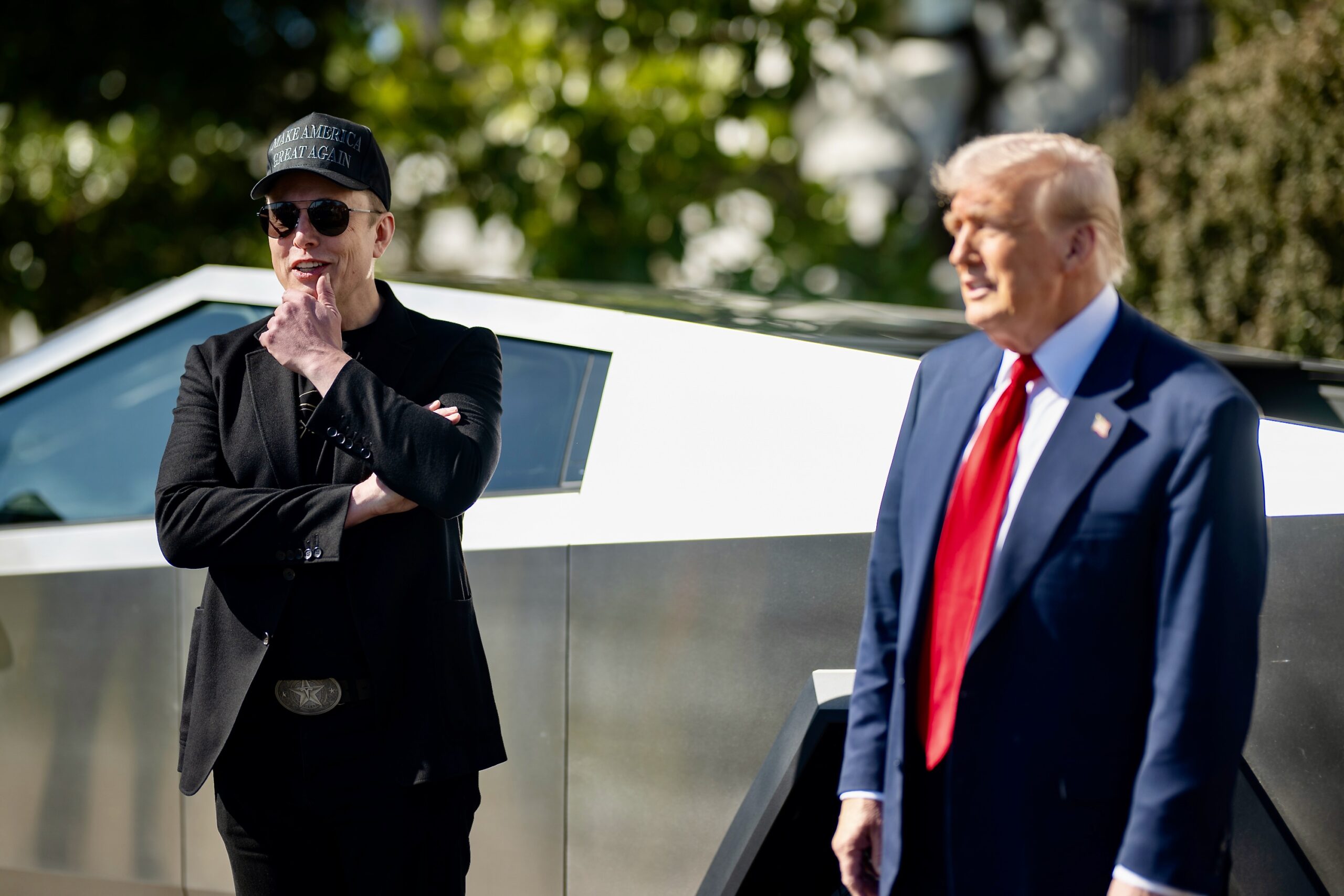
Musk with President Donald Trump outside the White House, March 11. ( White House /Molly Riley, Public domain)
Internal agency memos released to the press earlier this month indicated that, absent USAID assistance, up to 166,000 children could die of malaria, 200,000 could be paralyzed with polio and a million of them wouldn’t be treated for acute malnutrition. In addition to saving lives, USAID’s programs cast America’s image in the world in a far better light than does a narrow reliance on its sprawling military footprint and undue resort to threats of force as pillars of its foreign policy.
[CN: Eighty-percent of USAID was shut down before a judge stopped it. USAID delivered coup d’etats, not just food.]
Past Miracle Weapons
As a military proposition, the idea that swarms of drones and robotic systems will prove to be the new “miracle weapons,” ensuring American global dominance, contradicts a long history of such claims.
From the “electronic battlefield” in Vietnam to President Ronald Reagan’s quest for an impenetrable “Star Wars” shield against nuclear missiles to the Gulf War’s “Revolution in Military Affairs” (centered on networked warfare and supposedly precision-guided munitions), expressions of faith in advanced technology as the way to win wars and bolster American power globally have been misplaced.
Either the technology didn’t work as advertised, adversaries came up with cheap, effective countermeasures, or the wars being fought were decided by factors like morale and knowledge of the local culture and terrain, not technological marvels. And count on this: AI weaponry will fare no better than those past “miracles.”
“They see themselves as superior beings who can save this country and the world, if only the government — and ultimately, democracy itself — would get out of their way.”
First of all, there is no guarantee that weapons based on immensely complex software won’t suffer catastrophic failure in actual war conditions, with the added risk, as military analyst Michael Klare has pointed out, of starting unnecessary conflicts or causing unintended mass slaughter.
Second, Karp’s dream of “exclusive control” of such systems by the U.S. and its allies is just that — a dream.
China, for instance, has ample resources and technical talent to join an AI arms race, with uncertain results in terms of the global balance of power or the likelihood of a disastrous U.S.-China conflict.
Third, despite Pentagon pledges that there will always be a “human being in the loop” in the use of AI-driven weaponry, the drive to wipe out enemy targets as quickly as possible will create enormous pressure to let the software, not human operators, make the decisions. As Biden administration Air Force Secretary Frank Kendall put it, “If you have a human in the loop, you will lose.”
Automated weapons will pose tremendous risks of greater civilian casualties and, because such conflicts could be waged without putting large numbers of military personnel at risk, may only increase the incentive to resort to war, regardless of the consequences for civilian populations.
What Should America Stand For?
Technology is one thing. What it’s used for, and why, is another matter. And Karp’s vision of its role seems deeply immoral. The most damning real-world example of the values Karp seeks to promote can be seen in his unwavering support for Israel’s genocidal war on Gaza.
Not only were Palantir’s systems used to accelerate the pace of the Israeli Defense Force’s murderous bombing campaign there, but Karp himself has been one of the most vocal supporters of the Israeli war effort. He went so far as to hold a Palantir board meeting in Israel just a few months into the Gaza war in an effort to goad other corporate leaders into publicly supporting Israel’s campaign of mass killing.
Are these really the values Americans want to embrace? And given his stance, is Karp in any position to lecture Americans on values and national priorities, much less how to defend them?
Despite the fact that his company is in the business of enabling devastating conflicts, his own twisted logic leads Karp to believe that Palantir and the military-tech sector are on the side of the angels. In May 2024, at the “AI Expo for National Competitiveness,” he said of the student-encampment movement for a ceasefire in Gaza, “The peace activists are war activists. We are the peace activists.”
Invasion of the Techno-Optimists
And, of course, Karp is anything but alone in promoting a new tech-driven arms race. Musk, who has been empowered to take a sledgehammer to large parts of the U.S. government and vacuum up sensitive personal information about millions of Americans, is also a major supplier of military technology to the Pentagon.
And Vice President J.D. Vance, Silicon Valley’s man in the White House, was employed, mentored and financed by Palantir founder Thiel before joining the Trump administration.
The grip of the military-tech sector on the Trump administration is virtually unprecedented in the annals of influence-peddling, beginning with Musk’s investment of an unprecedented $277 million in support of electing Donald Trump and Republican candidates for Congress in 2024.
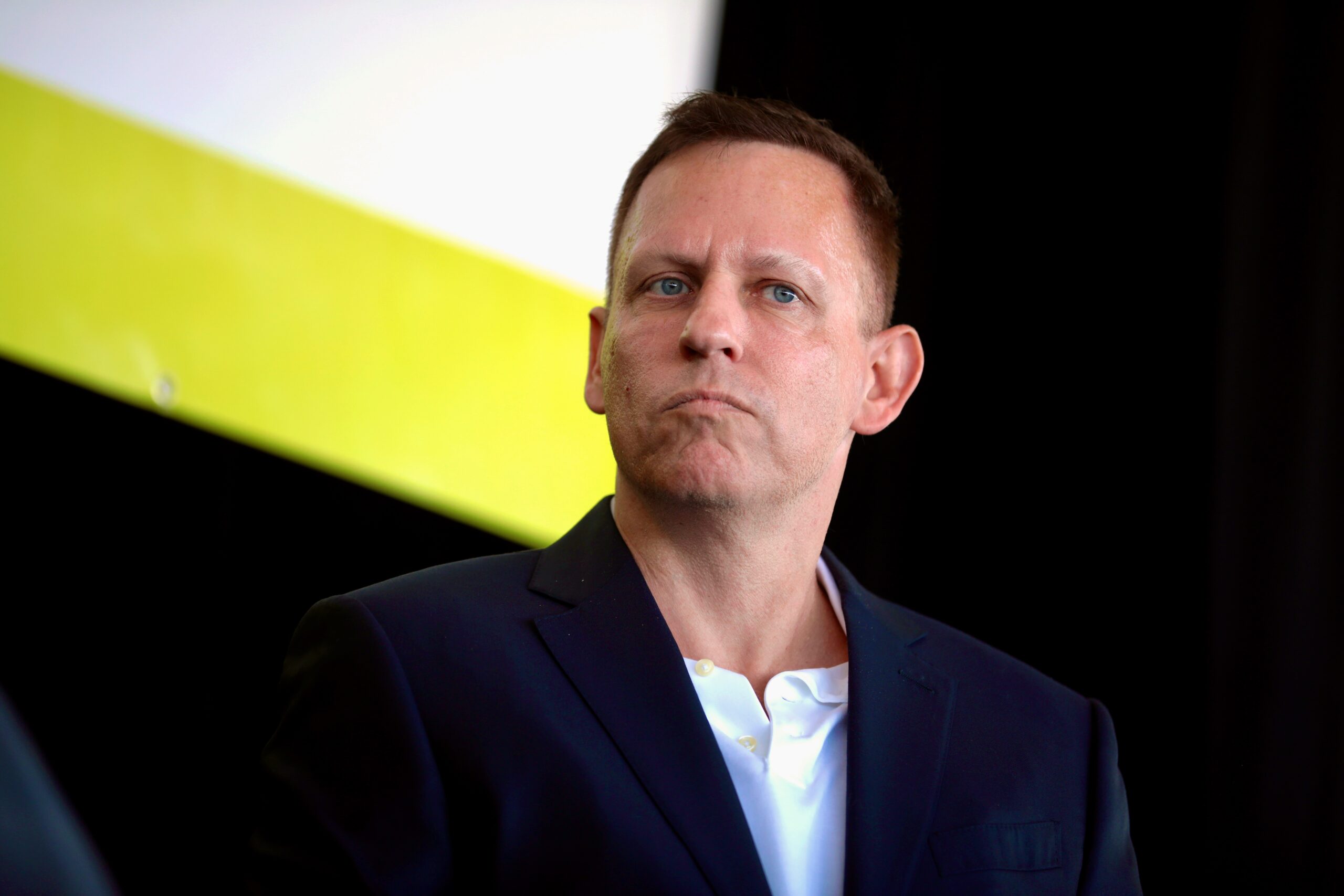
Thiel in 2022 at an event in Scottsdale, Arizona. (Gage Skidmore / Flickr/ CC BY-SA 2.0)
His influence then carried over into the presidential transition period, when he was consulted about all manner of budgetary and organizational issues, while emerging tech gurus like Marc Andreessen of the venture capital firm Andreessen Horowitz became involved in interviewing candidates for sensitive positions at the Pentagon.
Today, the figure who is second-in-charge at the Pentagon, Stephen Feinberg of Cerberus Capital, has a long history of investing in military firms, including the emerging tech sector.
But by far the greatest form of influence is Musk’s wielding of the essentially self-created Department of Government Efficiency (DOGE) to determine the fate of federal agencies, programs and employees, despite the fact that he has neither been elected to any position, nor even confirmed by Congress and that he now wields more power than all of Trump’s cabinet members combined.
As Alex Karp noted — no surprise here, of course — in a February call with Palantir investors, he’s a big fan of the DOGE, even if some people get hurt along the way:
“We love disruption, and whatever’s good for America will be good for Americans and very good for Palantir. Disruption, at the end of the day, exposes things that aren’t working. There will be ups and downs. There’s a revolution. Some people are going to get their heads cut off. We’re expecting to see really unexpected things and to win.”
Even as Musk disrupts and destroys civilian government agencies, some critics of Pentagon overspending hold out hope that at least he will put his budget-cutting skills to work on that bloated agency. But so far the plan there is simply to shift money within the department, not reduce its near-trillion-dollar top line.
And if anything is trimmed, it’s likely to involve reductions in civilian personnel, not lower spending on developing and building weaponry, which is where firms like Palantir make their money.
Musk’s harsh critique of existing systems like Lockheed’s F-35 jet fighter — which he described as “the worst military value for money in history” — is counterbalanced by his desire to get the Pentagon to spend far more on drones and other systems based on emerging (particularly AI) technologies.
Of course, any ideas about ditching older weapons systems will run up against fierce resistance in Congress, where jobs, revenues, campaign contributions and armies of well-connected lobbyists create a firewall against reducing spending on existing programs, whether they have a useful role to play or not.
And whatever DOGE suggests, Congress will have the last word. Key players like Sen. Roger Wicker have already revived the Reaganite slogan of “peace through strength” to push for an increase of — no, this is not a misprint! — $150 billion in the Pentagon’s already staggering budget over the next four years.
What Should US National Purpose Be?
Karp and his Silicon Valley colleagues are proposing a world in which government-subsidized military technology restores American global dominance and gives the U.S. a sense of renewed national purpose.
It is, in fact, a remarkably impoverished vision of what the United States should stand for at this moment in history when non-military challenges like disease, climate change, racial and economic injustice, resurgent authoritarianism and growing neo-fascist movements pose greater dangers than traditional military threats.
Technology has its place, but why not put America’s best technical minds to work creating affordable alternatives to fossil fuels, a public health system focused on the prevention of pandemics and other major outbreaks of disease and an educational system that prepares students to be engaged citizens, not just cogs in an economic machine?
Reaching such goals would require reforming or even transforming American democracy — or what’s left of it — so that the input of the public actually made far more of a difference and leadership served the public interest, not its own economic interests. In addition, government policy would no longer be distorted to meet the emotional needs of narcissistic demagogues, or to satisfy the desires of delusional tech moguls.
By all means, let Americans unite around a common purpose. But that purpose shouldn’t be a supposedly more efficient way to build killing machines in the service of an outmoded quest for global dominance. Karp’s dream of a “technological republic” armed with his AI weaponry would be one long nightmare for the rest of us.
William D. Hurting, a TomDispatch regular, is a senior research fellow at the Quincy Institute for Responsible Statecraft and the author of Prophets of War: Lockheed Martin and the Making of the Military-Industrial Complex.
This article is from TomDispatch.com.
Like this:
Like Loading...



